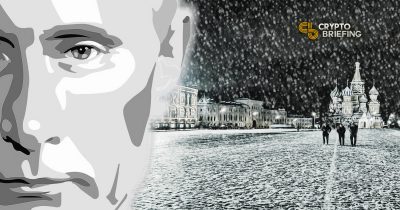Russia Offers Crypto A Way In From The Cold

Share this article
A series of positive steps seem to be suggesting a more flexible stance on cryptocurrency in Russia, and a possible thawing of the chilly stance that Russian leader Vladimir Putin has taken on the phenomenon.
Having previously cautioned investors that “the risk is on you…” Putin is unlikely to directly endorse a cryptocurrency: but in the past few days, new proposals have been made to amend the draft law “On Digital Financial Assets” and a recent ban that barred Russian based websites from running exchanges or from offering information about cryptos has been lifted by a court in St. Petersburg.
On Digital Financial Assets Reform
A group of legislators and a diverse group of representatives from government agencies to banks and regulators have come together to come up with new ideas to fix the current bill. One such change has to do with tax breaks on crypto transactions. One ministry official stated that exemptions should not only cover cover corporate earnings, but also personal incomes.
Regarding ICO listings, officials reported that they’ll be increasing the limit that non-institutional investors will be able to hold. The ceiling is being raised from 50,000 to 500,000 Russian rubles ($8,800) for investments in ICOs. Those involved in the potential amendments also spoke about lifting foreign investment limitations in order to open up their markets to the rest of the world. This also means that Russian crypto investors can also set up accounts in other foreign exchanges and invest in other foreign ICOs.
These amendments will be looked over and reviewed within the upcoming weeks by a government panel. There may be some concessions and changes once the bill is signed into commission. As Deputy Finance Minister Alexei Moiseev stated:
“Introducing tax exemptions is expedient, but the idea to increase the limit for individual investments in ICOs is debatable and we can discuss it.”
Even Russian miners have something to celebrate: although there appears to be a schism between the Central Bank and the Ministry of Finance on HOW miners should be treated, the overarching theme that they should be able to do operate in some way does not appear to be under threat:
“We believe they [the miners] should be doing that [exchanging cryptos] on Russian territory”, said Olga Skorobogatova, Deputy President of the Central Bank, while Moiseev suggested that “There shouldn’t be any specialized exchanges or special regimes for cryptocurrency trading” since these are already covered under the DFA law.
Progress Made On Crypto Sites In Russia
While these proposals and amendments are being drafted and debated, Russian crypto site owners have cause to celebrate as the website blacklist ban has been lifted.
Last year in May, the Oktyabrsky District court imposed a law that blocked 40 crypto websites and exchanges from operating in Russia – essentially making cryptocurrencies illegal. This was supposed to then be carried out by Roscomnadzor, their telecommunications supervisory agency. But the ban was just overturned by the Saint Petersburg City Court this week.
This measure was responsible for stopping free access into the greater crypto markets both in Russia and worldwide. Original reports from the regional court backed their decision by reasoning that bitcoin was not backed by any true intrinsic value (statements echoed by Putin) and did not have guaranteed purchasing power. Most likely their true fears were based on this revealing statement issued from the court:
“The Russian ruble was the only official currency in the country… emitting other currencies and money surrogates was prohibited.”
They’ve now shifted their focus to creating a new judicial panel that will review the ban.
Almost every day it seems like a new country or financial giant is either caving to crypto or admitting that it’s now a competitor to their industry. With the advent of new legislation on the horizon, there’s a possibility that this may represent a new line of thinking for Russian authorities and regulators who may now begin embracing blockchain technology.
Share this article
